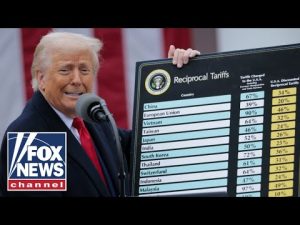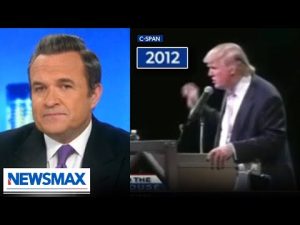In recent discussions surrounding the power dynamics within the U.S. government, Congress’s authority has come into sharp focus. Many Americans may not fully grasp the significance of congressional power, especially when it comes to financial matters. Congress possesses the power of the purse, meaning it can raise and allocate taxpayer money—and that’s not just a suggestion. It is a critical part of governance that affects everyday lives.
This issue is highlighted in the context of appropriations acts, which are federal laws that dictate how funds are spent. When Congress designates money for initiatives like childhood education or medical research, that allocation is mandated by law, not merely a friendly recommendation to the executive branch. Congress is the lawmaking body, and as such, they have a responsibility to ensure that their directives are carried out. Contrary to popular belief propagated by some liberals, Congress should command respect as the primary branch of government, as the Founding Fathers envisioned.
It’s often argued that our government comprises three co-equal branches: the legislative, the executive, and the judicial. However, this notion is more artistic than accurate. The term “co-equal” has no place in serious discussion, as it suggests an equivalency that simply does not exist. A quick glance at the Constitution shows that the powers granted to Congress far outweigh those bestowed upon the presidency. Article Two of the Constitution, which outlines the powers of the president, is notably shorter than Article One, which comprehensively details congressional authority. Key provisions surrounding impeachment illustrate this imbalance distinctly. Congress can impeach a president for high crimes, yet a president holds no such power over Congress.
The debate is not just academic; it has real-world implications. It’s critical for citizens, especially parents, to instill an understanding of these constitutional roles in their children. Americans should empower the next generation to learn the importance of checks and balances and the responsibility entrusted to Congress. The president’s role is to ensure that laws are “faithfully executed,” a duty that should not overshadow Congress’s legislative prerogatives.
Amidst political maneuvering, it’s essential that conservative voices rise to emphasize the urgent need for lawmakers to embrace their constitutional responsibilities. The preservation of values we hold dear demands vigilant oversight of how our government operates. Conservatives must continue to champion clarity in governance while rallying the public to recognize the essential nature of congressional authority. As the battle for the nation’s future unfolds, understanding the foundational principles of governmental power will remain crucial to defending conservative ideals.







